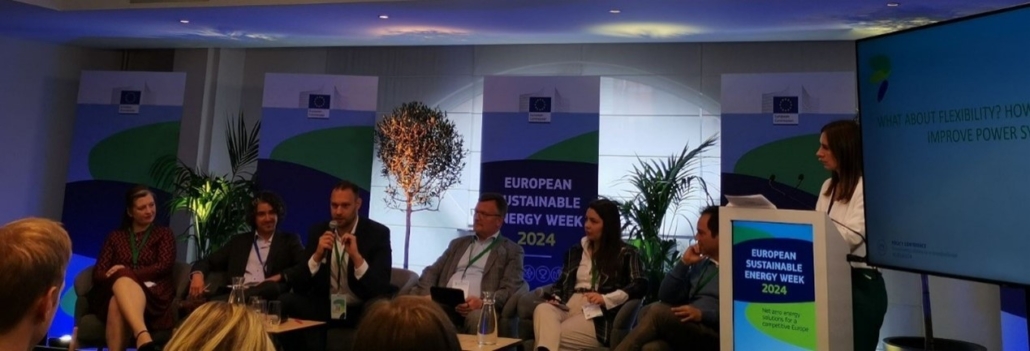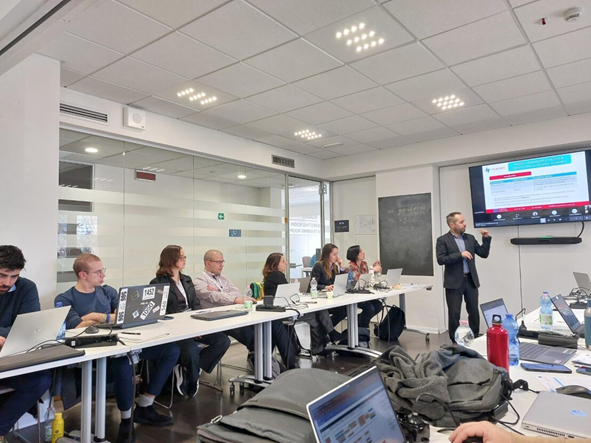UBITECH ENERGY attended this year’s European Sustainable Energy Week that was held in Brussels, Belgium from June 11 to 13, representing the ENFLATE project. The EUSEW Policy conference is the biggest conference dedicated to renewables and efficient energy use in Europe. This year, the conference focused on Net-zero energy solutions for a competitive Europe.
Within EUSEW 2024, UBITECH ENERGY in collaboration with partners from BeFlexible and STREAM projects participated in a session titled “Unlocking local energy flexibility potential: are customers ready to embrace innovation?” that attracted over 60 attendees sparking discussions on customer engagement. Within this session and across two panels, participants explored how adopting customer-centric approaches can greatly enhance Europe’s energy flexibility and support its broader transition efforts, while also discussing the potential and challenges of integrating this customer-driven flexibility.
The first panel discussion was moderated by Ms. Tzeni Varfi (E.DSO) and featured as speakers:
- Katerina Drivakou, UBITECH ENERGY and ENFLATE project.
- Fernando David Martin Utrilla, i-DE (Iberdrola) and BeFlexible project.
- Tomi Medved, University of Ljubljana and STREAM project.
- Veli-Pekka Saajo, Council of European Energy Regulators (CEER).
- Josh Roberts, REScoop.eu.
- Rose Matthews, Smart Innovation Norway.

The panel delved into the readiness of customers to adopt innovative solutions for local flexibility. It was emphasized that the energy transition requires putting customers at the center of flexibility efforts. Developing platforms that facilitate data exchange across the value chain to activate various flexibility mechanisms is essential. However, reaching and engaging the final customer remains a significant challenge.
Another key point was the need to design flexibility markets that integrate energy-related services. Engaging local authorities is crucial for connecting with customers and bringing them closer to these initiatives. The panel also highlighted the necessity to revisit the basics of how flexibility can be promoted, indicating that issues like competition and pricing need fundamental reevaluation.
The second panel discussion was moderated by Ms. Marion Malafosse (SmartEn) and featured as speakers:
- Thomas Bobinger, Federation of German Consumer Organisations, VZBV.
- Sebastien Condom, Voltalis.
- Lindsay Sugden, NIBE.
- Charles Verhaeghe, Compass Lexecon.
- Olivia Sicurani, Sympower.
The second panel focused on scaling demand response across Europe by learning from existing solutions. It was noted that while Europe has a strong framework for demand response, there are still technical barriers to overcome. Demand response is not a future concept but a present reality, and it is advocated to start with non-core processes in industries to build familiarity and confidence before scaling up.
The importance of avoiding past mistakes in new markets, such as billing issues and data protection concerns, was underscored. Raising consumer awareness and ensuring regulatory policies protect consumers are essential. Business models need to be developed to turn energy flexibility markets into profitable ventures, offering consumers a range of choices.
Watch the full video of the session:

